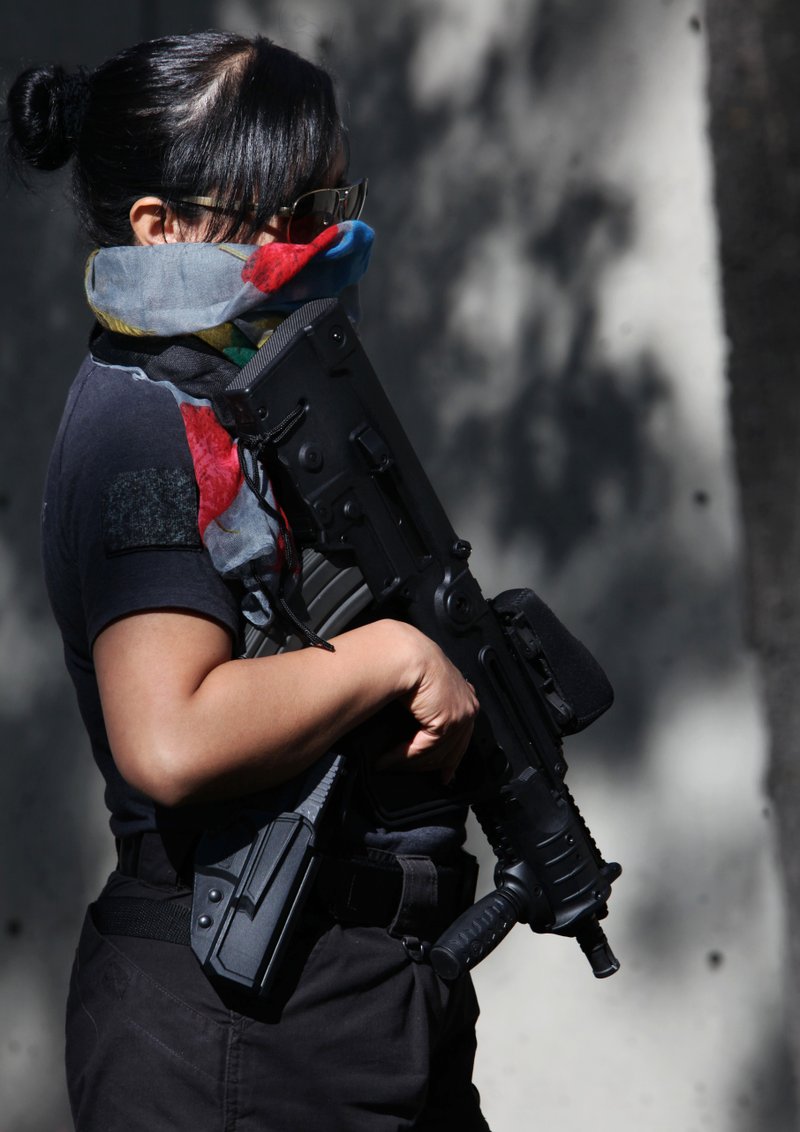MEXICO CITY -- Servando "La Tuta" Gomez, a former schoolteacher who became one of Mexico's most-wanted drug lords as the purported head of the Knights Templar cartel, was captured early Friday by federal police, Mexican officials said.
Gomez was arrested in a house in Morelia, the capital of the western state of Michoacan, without a shot fired, according to a Mexican official who spoke on condition of anonymity because he was not authorized to discuss the case. He said the operation was based on months of intelligence work.
The 49-year-old led the Knights Templar, a quasi-religious criminal group that once ruled all of Michoacan, controlling politics and commerce and preaching a code of ethics around devotion to God and family, even as it murdered and plundered.
Gomez evaded capture for more than a year after the federal government took over the state to try to restore order. The Mexican government had offered a $2 million reward for his capture, and he also was wanted in the United States on charges of conspiracy to import and distribute cocaine.
"With this arrest, the rule of law is strengthened in the country and we continue to advance toward a Mexico at peace," President Enrique Pena Nieto said on his Twitter account.
The arrest is the latest by Pena Nieto's 3-year-old government, which has been aggressive in capturing top drug lords, including the biggest, Joaquin "El Chapo" Guzman of the Sinaloa cartel, in 2014.
Gomez rose from schoolteacher to one of Mexico's most ruthless and wanted cartel leaders, authorities have said, dominating the lucrative methamphetamine trade for a time and controlling his home state through extortion, intimidation and coercion.
A U.S. Justice Department indictment in 2009 accused Gomez of being behind the murder of 12 Mexican federal law enforcement officers whose bodies were found in July of that year while he still operated under the La Familia cartel.
Outspoken and crafty, Gomez often appeared in videos wearing his signature baseball cap and salt-and-pepper goatee during his time on the run.
The recordings showed him meeting with elected officials, journalists and other influential people, including the son of former Michoacan Gov. Fausto Vallejo, a member of Pena Nieto's Institutional Revolutionary Party. Vallejo resigned last year for health reasons. Vallejo's interior secretary, Jesus Reyna, and other officials have been jailed regarding reported connections to the cartel.
Though his gang started with drugs, it eventually took over the Port of Lazaro Cardenas, one of Mexico's largest seaports, and made more money from illegal mining, logging and extortion than it did from drugs, authorities said.
In an interview with a British television crew in January 2014, Gomez said his illegal work was all about business.
"As we told you, we are a necessary evil," Gomez is seen telling a group of townspeople. "Unfortunately or fortunately, we are here. If we weren't, another group would come."
In Arteaga, his hometown in the hills of Michoacan, some residents praised him as a humble man who would give poor people money for food, clothing and medical care. They said he mediated disputes in cases such as traffic accidents or child-support battles.
Born on Feb. 6, 1966, Gomez started as a grade-school teacher and was still listed on a payroll at a school there as recently as 2009.
Media outlets often have interpreted "La Tuta" -- which translates to "the teacher" -- to be a reference to Gomez's former career, but in an interview with MundoFOX he once explained that it came from childhood. When he was a boy, a Spanish engineer who went by the name "Tuta" was working on a nearby highway. Both had prominent noses and people started using the name to address Gomez.
Gomez apparently started out transporting marijuana before becoming, in the mid-2000s, a top leader of La Familia, a cultlike cartel that preceded the Knights Templar, authorities have said.
La Familia initially portrayed itself as a crusader gang, protecting communities from the rival Zetas cartel. Witnesses said La Familia trained its recruits in ultra-violent techniques like beheading and dismembering victims, and it frequently ambushed soldiers and federal police.
The gang weakened after the government claimed that police killed the cartel's top leader, Nazario "El Chayo" (The Rosary) Moreno Gonzalez, in a shootout in late 2010. One faction sought help from its old foes, the Zetas. Authorities said Gomez instead started the Knights Templar and continued to work with Moreno, who was still alive despite the government's claims.
Moreno was killed last year in a second assault by the government, which this time produced the body.
Other leaders of the Knights Templar have been arrested or killed, and Gomez was the last holdout, leading to some speculation that he had negotiated a deal with the government.
The arrest is a win for Pena Nieto, who has faced political and security crises since 43 college students disappeared last fall at the hands of local authorities in Guerrero state.
It coincided with Friday's announcement that Pena Nieto's attorney general, Jesus Murillo Karam, would leave his post after months of criticism over his handling of the students' disappearance as well as a June case in which soldiers killed more than a dozen suspected criminals after they surrendered.
Information for this article was contributed by E. Eduardo Castillo and Peter Orsi of The Associated Press.
A Section on 02/28/2015

